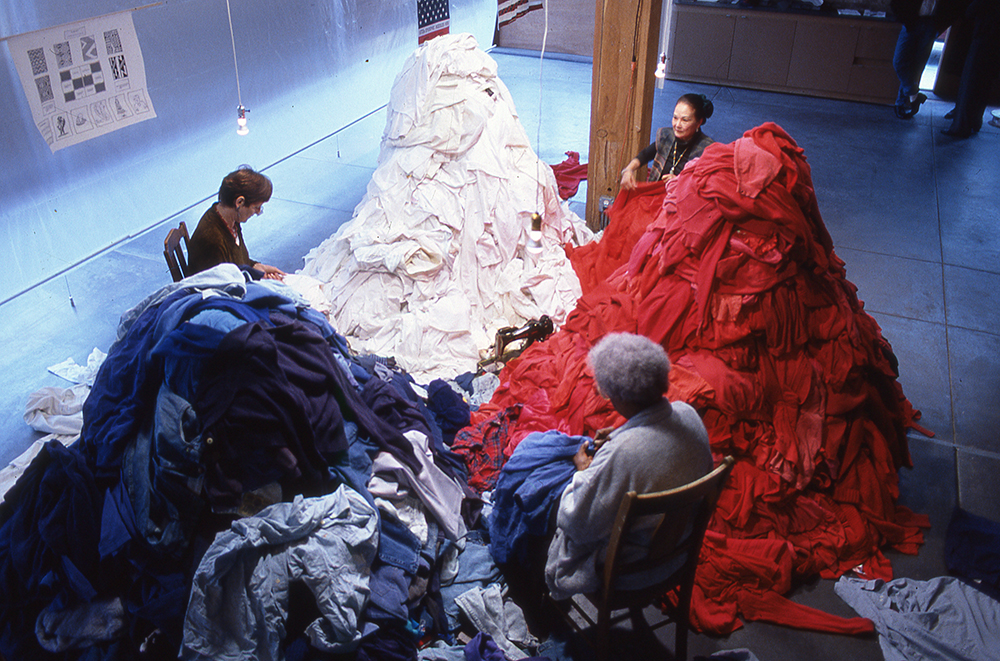
Free, Special Event
How We Work
August 3, 2019
1 and 3 p.m.
Phyllis Wattis Theater and Floor 7 Galleries
Free; talk participants will receive free admission to the galleries for the conversations. Guests should proceed directly to the Phyllis Wattis Theater on Floor 1 upon arrival. Cleaning Conditions, a performance by Suzanne Lacy scheduled for Saturday, August 3, is canceled.
We mark the end of the exhibition Suzanne Lacy: We Are Here with an exciting program of conversations exploring how performance art and social practice enter into—and complicate—museum exhibition practices, featuring distinguished guests Hans Ulrich Obrist, Catherine Wood, and Mami Kataoka; the exhibition curators; the artist; and some of Lacy’s collaborators from past projects.
Schedule
1 p.m. “How We Work,” a conversation with artist Suzanne Lacy and Catherine Wood, senior curator of international art (performance), Tate Modern, London, moderated by Hans Ulrich Obrist, artistic director, Serpentine Galleries, London
3 p.m. “Alterations: Contingent Labor,” a conversation with seamstresses from the Alterations installation
3:30 p.m. “Freeze Frame: Today’s Coalitions,” a conversation led by Mami Kataoka, deputy director and chief curator, Mori Art Museum, Tokyo
Following the July 27 program “Where Are We: Defining Youth Engagement and Social Practice” at YBCA, “How We Work” convenes artist Suzanne Lacy and renowned international curators Catherine Wood, senior curator of international art (performance) at Tate Modern, and Hans Ulrich Obrist, artistic director of the Serpentine Galleries, in a conversation on the stakes and challenges of creating and exhibiting socially engaged artwork within museums. What are the considerations and approaches offered by artists as they stage or otherwise recontextualize earlier temporal work? What are the challenges facing museums and artists in commissioning art that is time- and community-based? Should exhibitions attempt to bridge the gap between exhibited objects and live or process-based formats? What arises when the processes of a museum are themselves part of an artwork? These intriguing issues have been part of the exhibition curators’ conversations for three years as they prepared and ultimately presented the major retrospective Suzanne Lacy: We Are Here.
In the Floor 7 galleries, we host reunion conversations between participants and collaborators from Lacy’s past projects, and performers from SFMOMA’s current presentation of Alterations (1994), a work in which participants stitch together red, white, and blue garments. During the program, the women featured in Alterations will occupy the installation to discuss their labor in this exhibition. Moving to the installation Freeze Frame: Room for Living Room (1982)—which brought more than 120 women together in a San Francisco furniture showroom to discuss issues of survival, difference, and belonging—former participants from multiple projects, including those on view at YBCA (The Oakland Projects and The Skin of Memory), will gather for a conversation led by Mami Kataoka, deputy director and chief curator of Mori Art Museum and artistic director of the 2018 Sydney Biennial.